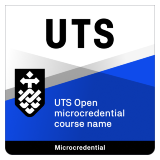Assessment task 1 : Business analytics – context and ideation (individual - weight: 40%)
For this assessment task, you will be required to identify an organisation and, through research of the organisation and its industry, identify a problem it faces that could be solved through the use of business analytics. You will then be required to outline the business analytics process (i.e., collecting, storing, managing, analysing and presenting data), including any relevant ethical considerations.
Assessment task 2 : Business analytics – prediction and communication (individual - weight: 60%)
For this assessment task, you will be provided with a business scenario and dataset. You will then be required to use the dataset and apply business analytics techniques in order to generate a comprehensive understanding of the relationship between variables, in response to the identified business problem. You will be required to present these insights in a clear and effective manner.
Participants must achieve at least 50% of the course’s total marks to pass.


















